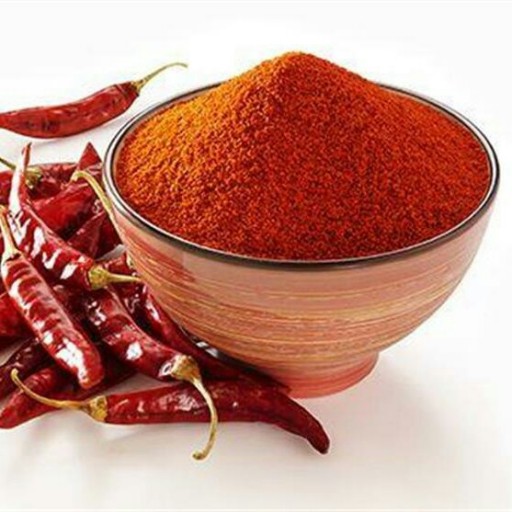Blood clot prevention:
The powerful antioxidant capsaicin helps dilate blood vessels for proper blood flow in the body, reducing the risk of blood clots.

Loses weight by:
You will feel fuller for longer by eating hot sauce or ground chili peppers. In addition, hot sauce speeds up the metabolism of food and is absorbed faster by the body.
Toxins should be eliminated from the body as follows:
Cayenne pepper stimulates the liver and gallbladder, eliminates toxins from the body, strengthens the immune system, and activates sweat glands by naturally raising body temperature.
Treatment for sore throat:
Red pepper’s active ingredients reduce inflammation, control mucus production in the nasal passages, and kill disease-causing germs and bacteria, but it is not recommended for children.
Cancer prevention:
It has been shown that products containing hot red peppers prevent lung, liver, prostate, and skin cancer. Daily consumption of hot pepper or homemade hot pepper can prevent cancer.
Pain relief for joints and muscles:
Red pepper contains anti-inflammatory compounds, relieves pain, and prevents the activation of pain nerve signals, thus reducing pain. Ointments and creams containing hot red pepper relieve osteoporosis.
Cold prevention:
Activating the nasal secretions with red pepper causes sneezing, relieves congestion of the nose and sinuses, and helps treat flu and colds.
Infection-fighting ability:
It contains water-soluble vitamin C, a powerful antioxidant that helps the body get rid of free radicals that cause cancer and resist infectious agents. You won’t regret it. A tablespoon contains 108% of the daily requirement of vitamin C.
Hot peppers contain folate, which lowers blood pressure. As well as potassium and sodium, this composition maintains proper blood flow. High blood pressure is reduced by dilation of blood vessels.
The iron and copper minerals in hot pepper may help form red blood cells. In contrast, iron deficiency leads to fatigue, anemia, and muscle weakness.
The right amount of oxygen in the brain, in addition to iron, reduces the risk of cognitive disorders. It is worth noting that the amount of iron in hot pepper increases blood flow and increases hemoglobin production, resulting in dementia, Alzheimer’s disease, and increased cognitive function.
Consuming enough vitamin C to maintain the strength and vitality of the skin and hair. It is possible to produce the main protein found in the skin and hair. As a collagen protein, it preserves and improves the immune system.
Reduces cholesterol and triglycerides in the blood : Since hot pepper increases the body’s ability to dissolve fibrin, which is a complement to blood clot formation, thereby reducing platelet aggregation, researchers have also shown that its consumption may reduce atherosclerosis. Additionally, chili peppers protect the fats in the blood from free radical damage, which is the first step in its development, and it is worth noting that cultures that consume chili peppers have much lower rates of heart disease and stroke.
Since hot pepper is a natural muscle relaxant, hot pepper is often used in ointments to relieve muscle pain.
Inhibiting the growth of Helicobacter pylori, which causes some types of ulcers.
Congestion can be relieved by shrinking the blood vessels in the nose and throat. Colds, coughs, and congestion are commonly treated with hot peppers.
The following vitamins and minerals are contained in this product:
Phylloquinone is vitamin K1. Kidneys, bones, and blood clotting depend on it.
Calorie metabolism is aided by vitamin B6.
It is worth mentioning that Western diets lack copper, which is an essential antioxidant for nerve health and bone strength.
In addition to maintaining vision with age, vitamin A contributes to the health of the reproductive system, internal membranes, skin, teeth, and bones, and one tablespoon provides 44.5% of the daily recommended amount.
Damage caused by red peppers
Although red pepper has many benefits, it also has some disadvantages, such as:
Hot pepper temporarily aggravates the symptoms of irritable bowel syndrome in people who aren’t used to eating hot pepper regularly. There is heartburn in the intestines, painful diarrhea, abdominal pain, and muscle cramps.
The capsaicin in hot pepper binds to pain receptors, causing a strong burning sensation when exposed to large quantities of its spray. Inflammation, swelling, and redness can result.
Red pepper consumption was identified as a risk factor for mouth and throat cancer in India, especially in the stomach and gallbladder.


